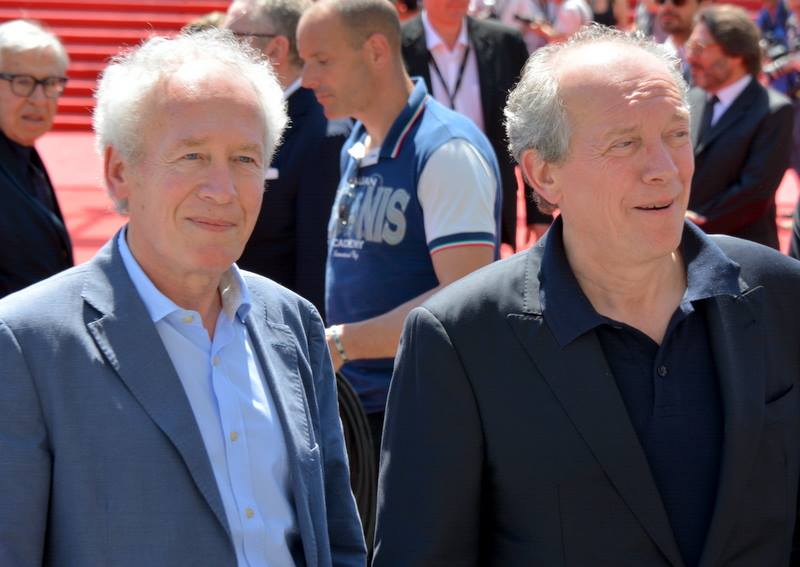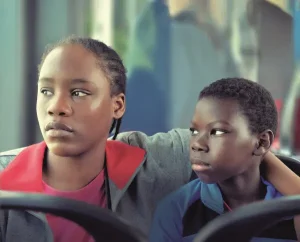A Conversation with the Dardenne Brothers (TORI & LOKITA)

Jean-Pierre Dardenne and Luc Dardenne (better known as the Dardenne brothers) are a duo of filmmakers from Belgium. They have been writing, directing and producing all of their films since their 1978 debut Le Chant du Rossignol. In 1987 they debuted their first fiction film titled Falsch. In 1999 and 2005 they won the Palme D’or for their films Rosetta and The Child respectively. They have been staples at Cannes over the years winning the grand prix, best screenplay, best director and recently with Tori and Lokita, they won the 75th anniversary prize. Their films feature realistic and often heartbreaking depiction of working class life in Belgium. They are masters of their craft and legends in the film industry. It was an honor to speak with both of them in the following interview edited for length and clarity.
Hammer To Nail: After all these years, with 20 films or so under your guys’ belts, why Tori and Lokita now. What inspired it?
Jean-Pierre Dardenne: Because I think there are more and more “Tori and Lokita’s” arriving in Europe. Recently I saw articles in the New York Times about similar situations. I believe it is happening in the United States as well. We read a number of articles, specifically one adolescent magazine that talked about these children that were arriving. We are talking about hundreds of children, on their own, with no parents and they are disappearing. The theory was that they were disappearing into the crime and drug network. Many of them were probably being killed. That upset us so much. We found that so unacceptable. It became an important thing for us and we wanted to make a movie about it. The fact that this was happening to these children and it was not provoking much of a reaction from these democratic countries, who are supposedly concerned with these things, inspired this film.
Hammer To Nail: Your writing and direction in this film is excellent, however, nothing would work without the incredible chemistry between Tori (Pablo Schils) and Lokita (Joely Mbundu). How did this casting process work and what was it like directing a film that starred two unprofessional actors?
Luc Dardenne: First of all we saw about a hundred candidates for each character. It turned out that who we chose for Lokita was tall, so that worked out well. It was a nice contrast with Tori who we knew had to be small, because, for instance, he had to be able to hide in the car and hop in and out of things. It turned out that Tori and Lokita sang very well, which was important. It was the first time we had worked with two unprofessional actors. We had worked with people who had never acted before in other films but, usually, there was a juxtaposition via another trained actor. In this case we had 5 weeks of rehearsal.
In the beginning we did something that we don’t do normally because it is not a great idea, which was we showed them things to do initially. They had no idea about how the camera is positioned, this, that everything. We moved through it fast, that was maybe the first week. As time went on they appropriated the things we gave them and put them into their own rhythms organically. Gradually, they were able to develop the characters. In the end, it does not make that much of a difference to us whether we are working with professional or non professional actors.

A still from TORI AND LOKITA
HTN: Explain the thinking behind only having diegetic sounds in the film?
JPD: The audience has the impression that the sounds you are hearing are only within the world of the film. The fact is that we do add some sounds in the sound edit room. They are location sounds, but they are additional sounds. Our aim is that the audience feels it is organic and that the sounds are endemic to the exact location.
HTN: This film is extremely bleak. It stood out as particularly sad at Cannes which means it is really sad haha. How do you run a set like this? Is it a very serious and intense environment at all times or are you guys having fun?
LD: I don’t like the word “sad.” I don’t really agree with it. Maybe my brother and I are crazy for not experiencing it that way and maybe it is because we are not entirely normal, but, to me it is a story about friendship. Friendship between two youths. That is really a bright light. There is a luminosity attached to that. If you say something is sad it makes me think of blandness or boredom. We have a lot of fun on set but we also work very seriously. It is a combination. When we work we work. In the end there is singing in the film, they eat pizza together, they laugh together, all of those things and moments of joy are dispersed through parts of the film. So, I do not see it as a sad story, despite the tragic ending. Lokita saves Tori. She does not say where he is to the gangsters. Thereby she saves him. There is a lot of beauty in that as well.
HTN: You guys have been working together for quite some time now. Has your screenwriting process shifted over the course of your long careers or are you guys going through a similar process with Tori and Lokita as you did with your debut.
JPD: First, we talk a lot. Then, a structure starts to emerge. Finally, we have the entire basic structure of the film as we envision it. Then, Luc locks himself up and he starts to write. There are no two people with two pens writing, he is the one that does the writing. As he is writing, sometimes certain things start to shift or modify a little bit. Sometimes they are not minor changes, sometimes there is a major shift.
HTN: And it has always been this way?
JPD: Yes
HTN: I’d like to talk about the anatomy of the sequence in which they slide down that very vertical hill, how did you guys pull that one off?
LD: We had a large rubber belt, like really big. We put it under the sled and there were breaks that were put on it. You could not see them, they were very little. The set designer did those. Tori was manning them. If you just slid down you would have gone really fast because it is a hill of gravel. Beneath was a snowboard type thing. So they were all layered and there were these handles on the side.
JPD: If you had just the rubber, without the snowboard, you just would have sunk into the gravel.
LD: The gravel was a little bit soft.
HTN: It was a great sequence.
LD: We thought of that because there is a film we saw where there are some kids sliding down using makeshift sleds. The filmmaker is Italian. That is why it was inserted into the film. That is what gave us the idea.
HTN: Talk about the thinking and execution behind these final moments. The decision to not really show Lokita being shot, the quick cut to the funeral, the abrupt ending, I loved all these decisions, what was your thinking behind it?
JPD: An answer, that is an answer, but is not really an answer is it just seemed like the better way to go. We felt that it was more powerful to have her mostly hidden with just the sound of the water in the background. The audience sees the woods. Things that you do not see are more powerful. That is why we went with that method. We thought it was stronger to keep them in this frame where the nature around them is continuing. Everything just keeps going but they just lived through this huge cataclysmic trauma. We never thought about doing it another way. The reason we went straight to the funeral was we wanted to stay within the rhythm and movement of Tori’s emotions. If we had started to have him go to the police or do this or that, it would cut the rhythm. We thought it would be much stronger to have him continue in the flow of his trajectory.
LD: Once we knew that the crux of the film was the friendship we had to keep that going. Yes, they were separated by death, but they are still together in the end. The friendship is still there. That was really important. Keeping the focus on that.
HTN: Thank you guys so much, I really loved the film and it is an honor to speak with two legends like yourselves.
JPD: Thank you.
LD: Thank you.
– Jack Schenker (@YUNGOCUPOTIS)
Dardenne Brothers interview; Tori and Lokita movie review











